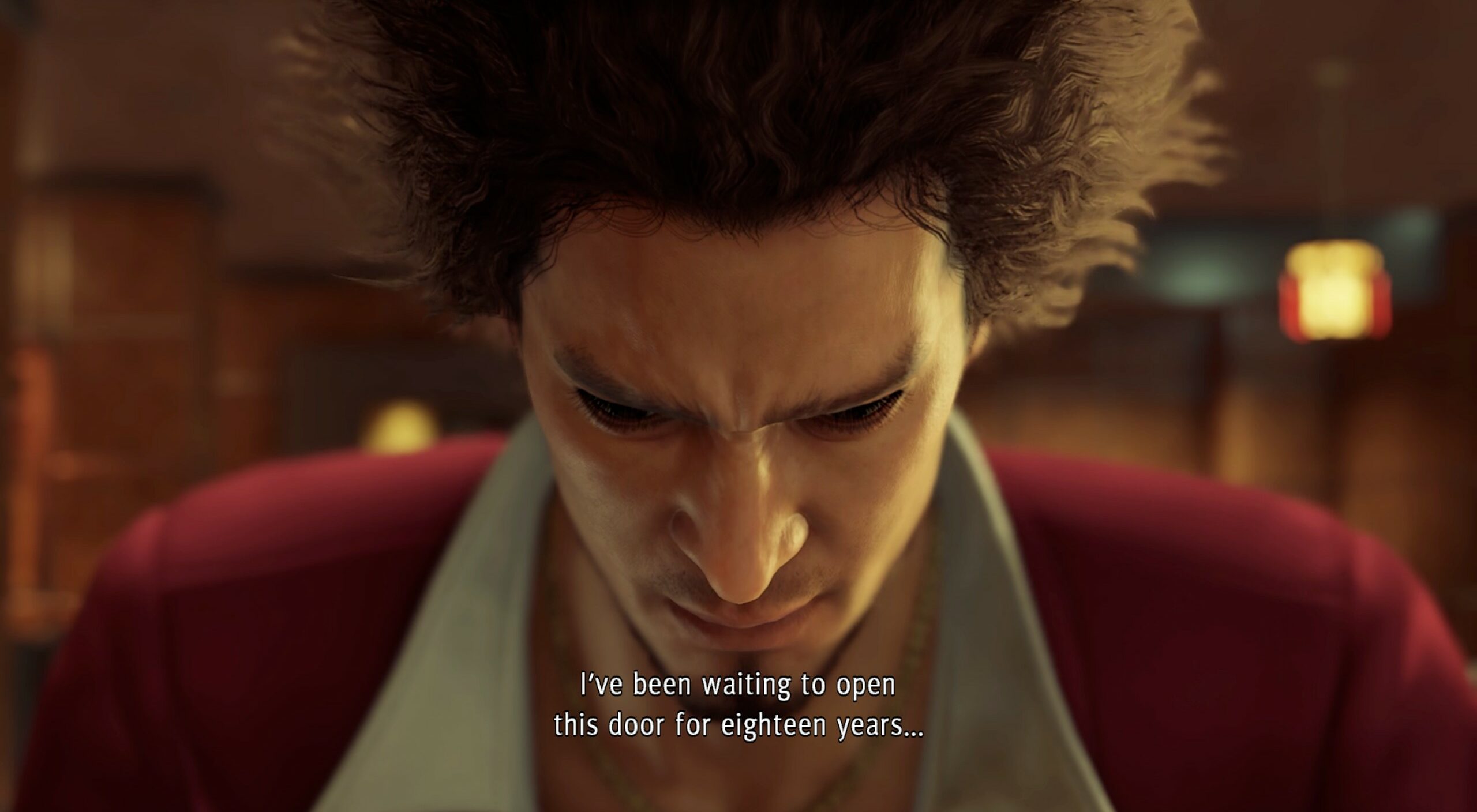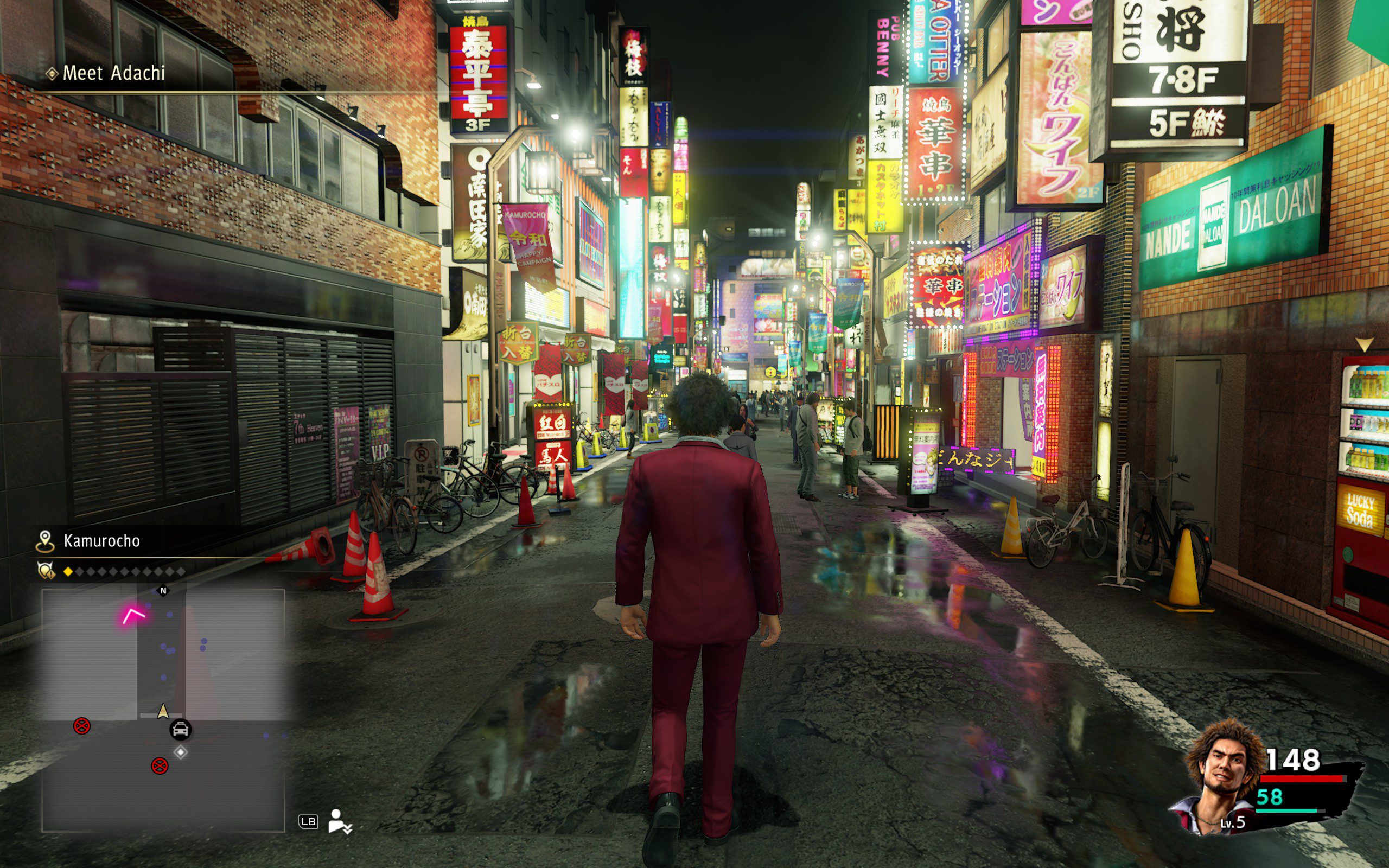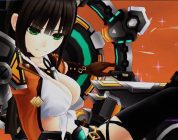In the last few years, the Yakuza series and the saga of Kazuma Kiryu has risen from hidden gem to arguably Sega’s strongest franchise. Known for its over-the-top drama blended with wacky, extreme comedy and larger-than-life personalities, the Yakuza series has over time risen above the initial false assumption that it is “GTA Japan”. The game series is actually more of a slice-of-life brawler with RPG elements, where players fight thugs in the street on the way to the arcade or the karaoke bar in between punching yakuza bosses in grandiose battles. Ridiculous encounters, bosses in particular, have had me stuck for ages as I slowly learned the patterns for skillfully dodging and attacking, almost like a Dark Souls boss. Primarily following the same protagonist for seven games I’ve brawled my way through various Yakuza games over the years. Naturally, the latest game in the series Yakuza: Like a Dragon has gone full-on turn-based JRPG and features a whole new cast of characters.
Wait… what?!
Yes, this time around we follow the tale of Ichiban Kasuga, a low-level yakuza grunt who loves Dragon Quest so much that when he gets into a fight he can’t help but think about being a hero and analyzing the fight like in his favorite JRPG games. This is actually the entire narrative framework as to why Like a Dragon is a turn-based JRPG, you are experiencing the fight as Ichiban views it. This is one of many nods and references to various JRPGs franchises that await players throughout the game. Shortly after getting started, Ichiban finds himself in a precarious position of being willing to do anything for his clan, which includes taking the fall for the crimes of a much higher ranking member. Ichiban is sentenced to prison for 15 years, which is extended after getting into a fight defending his clan’s honor. Upon his release, he finds a much different world in not only technology and cultural trends but the yakuza is not the same as he left it. In his efforts to find answers, he ends up shot and tossed in a dumpster in another city.
This is where the events of Yakuza: Like a Dragon really take off.
The biggest change in Yakuza: Like a Dragon is in the combat, which has made the dramatic change to turn-based combat rather than that of a brawler. The attack command is fairly standard, having the character simply perform an attack with whatever weapon they have equipped. A staple of the Yakuza series is picking up things around the environment and utilizing them as a weapon. This aspect is implemented automatically as characters will get a bonus attack by kicking an object at the enemy. There are also some environmental hazards like traffic that can make an impact on combat occasionally but this is not nearly as prominent in combat as in last games. Guarding will reduce damage taken and requires a button hold to execute to help avoid mistakes. Skills present a list of special actions available to the character whose turn it is. These skills range from various physical attacks, “spells”, and status effects. Physical attacks add a bit more engagement by asking players for either a timed button press or rapid mash for a chance at extra damage. The “spells” are humorous as they often include something like throwing beans to summon pigeons that attack the target or using high-proof alcohol and a lighter to ignite foes. There are also spells that will boost team stats or lower the stats of the enemy in various ways like Bad Breath or Rousing Speeches. Everything feels familiar to that found in many classic JRPGs but with a distinct Yakuza flavor to it all. Finally, the Etc command is where one uses items, summons Poundmates, or Tag Out. Poundmates are the summon equivalent where, for a fee, Ichiban calls in the services of an extremely powerful ally to aid in battle. There’s an interesting variety of these Poundmates from flashy bodybuilders, to a man in a diaper, to a crawfish. The summons are all impressively animated and extremely entertaining.
The combat in Yakuza: Like a Dragon overall is exceptionally amusing and often cracked a smile on my face. The overall presentation takes some inspiration from Persona 5 with a floating menu that feels like it’s an element of the world rather than a standard video game UI. Though definitely not as flashy as Persona 5, it is a nice touch that helps make Yakuza: Like a Dragon feel more modern compared to much of its inspiration. All the little touches of flair keep the combat from getting stale.
On top of the turn-based combat is a job system, allowing characters to equip different weapon types and have access to different skills. These become available as progression is made. Jobs include some standard jobs you’d expect to find in a JRPG with a modern setting: Freelancer, Detective, Hitman, but also include things like Homeless Guy, Barmaid, and Chef. Not far in, Ichiban literally gets the “Hero” job adding further to the entire game’s tongue-in-cheek nature. Each job also provides a new look to each character, leading to some hilarious results. Leveling up not only character level but also job level automatically increases stats and grants new skills. There is also a second set of stats that typically increases based on activities done in the world like going to the cinema or having a conversation with a party member. These have an impact in combat too, increasing the likelihood of various status effects skills.
All of this doesn’t include the variety of mini-games that permeate every Yakuza game. Billiards, mahjong, staying awake at the cinema, going to school (including Sega History), and even full Sega arcade games are available to play anytime you are given free roam of the city. There seems to be something for everyone here. Some games are more fun than others because of the nature of the game itself, not because of the controls given to each. These mini-games are responsive and feel appropriate for each. They continue to be a welcome way to change things up and take a break from the story or all the fighting. I encourage checking out the ones that catch your interest.
Visually, Yakuza: Like a Dragon is some of the best the series has to offer, the streets are so full of detail. All the little signs, especially at night, really add to the ambiance of each district. The models, textures, and animations of the main cast are superb. Yakuza, as always, delivers in designing grounded yet unique looking characters. This unfortunately makes the things that weren’t as high on the priority list stand out even more such as a poorly textured or modeled bottle or doorknob. This is, of course, heading into nitpick territory but the contrast is stark and more than once distracted me as I looked at an object or an NPC that just didn’t fit into the wonderfully detailed world that has been created. This is pretty isolated to areas or people only seen once, the main areas and populace don’t suffer from low-poly-itus quite nearly as much, and again this is usually only noticed upon close inspection.
The Yakuza series should be considered a masterclass in camera work in video games. Even in basic conversations, where there’s not even a voice-over, there are little camera movements or cuts that add and punctuate the scene. Close-ups, wides, and angles to impact perspective are all present. It is even more present in the fully realized cinematics where Yakuza blurs the line between being a video game and a serial drama, sometimes presenting 20 minutes or more of mostly dialogue and cutscenes. While I typically see this as a positive thing there have been times where I commit to doing one more thing and end up caught up in an hour or more of content. This could definitely be considered a downside for those that don’t like cinematic heavy games. Just know these scenes are a cut above the rest and tend to be entertaining, so I say kick back and enjoy.
Combat is enhanced greatly in terms of entertainment with what I call anime flair. Characters proudly announcing attacks and being adorned by flashing sparks and other effects add a level of visual polish that is greatly appreciated. On an RTX 2060KO and Ryzen 7 3800, I was able to comfortably run the game at mostly high settings at 1440p at a steady 60fps. If I made the jump to 4K, however, my framerate would plummet to the 24 to 30 fps range.
Another new addition to Yakuza: Like a Dragon is the inclusion of an English VO. I started my playthrough with it. However, being a Yakuza veteran, something just didn’t feel quite right and I switched it over to the original Japanese. From what I have heard though, the English VO is well done and will likely be welcome to many players that are new to the series and I am also always a fan of player choice. Attacks and skills are all accompanied by voice lines and sound effects that provide satisfaction and further enhancement of the combat and grounding to the cinematics. The Japanese cast provides excellent performances, knowing exactly when to pump it up and when to pull it back. The soundtrack is filled with J-Pop and rock but isn’t afraid to branch out into other genres too including but not limited to heavy metal, rap, and ballads. Plenty of musical themes and tracks return from the franchise. A few of the tracks have been added to my regular listening rotation and I think it may be my favorite Yakuza soundtrack yet.
Yakuza: Like a Dragon somehow maintains what makes Yakuza such an enjoyable and striking series to play while successfully completely overhauling its gameplay and featuring a brand new cast of characters. This, I would say, makes it a perfect starting point for newcomers to the series. Yakuza: Like a Dragon is at the top of its game, putting forth some of the best writing, music, and visuals the series has ever offered. The new protagonist Kasuga Ichiban has no trouble carrying the mantle that Kiryu held for so long. Like a Dragon is full of that Yakuza charm that has given the series such staying power to warrant bringing the entire series to modern consoles through remakes and remasters.
The series staples of drama, humor, and action are all present in Yakuza: Like a Dragon and packaged together into one of the best turn-based JRPGs I’ve ever played.
For more information about Yakuza: Like a Dragon, check out the official website. A Steam copy was provided for the purpose of review.
Be sure to check out our thoughts on some of the other Yakuza games! Yakuza Remastered Collection, Yakuza Kiwami, and Yakuza Kiwami 2.










